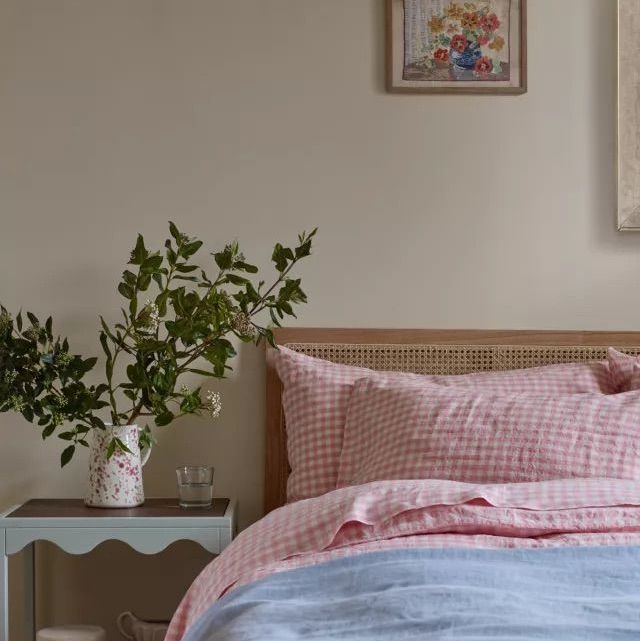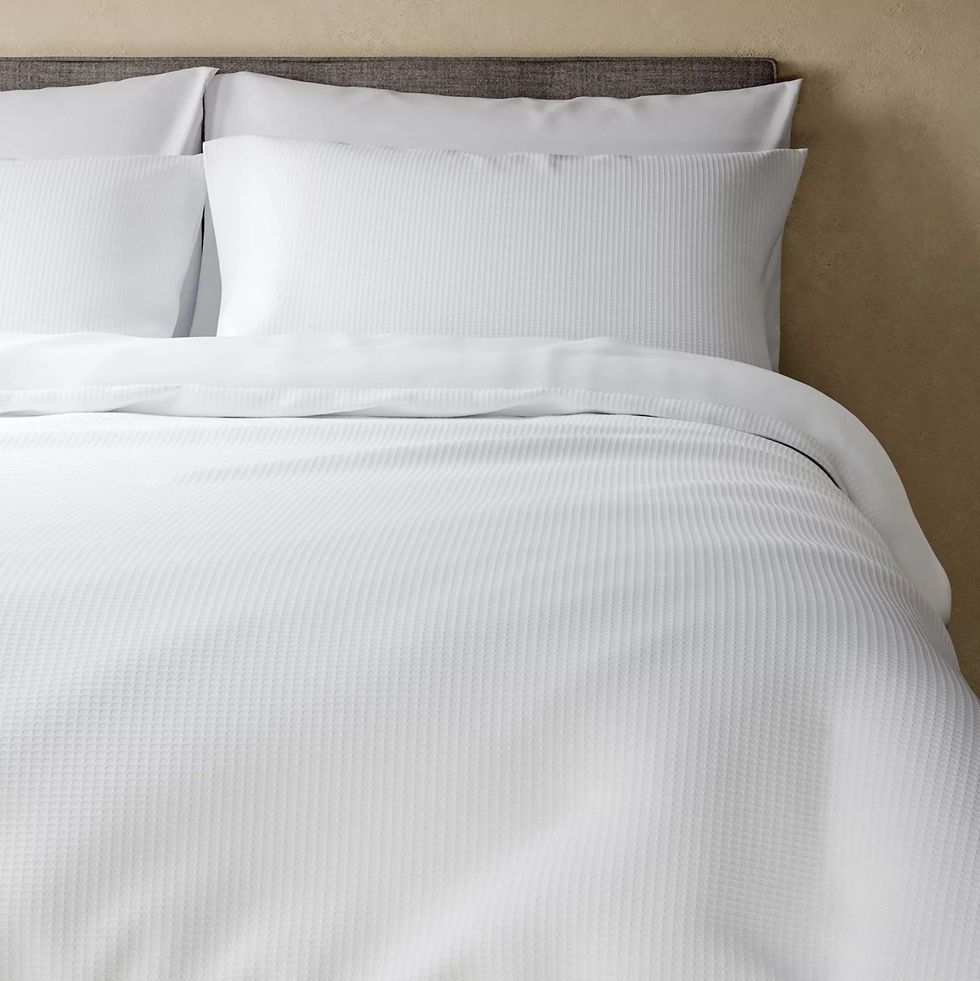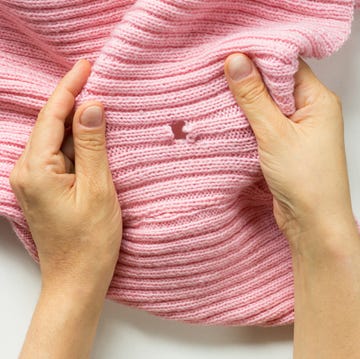Love Good Housekeeping and want more of our Triple-Tested recipes, home tips, fashion inspiration, essential consumer advice and so much more delivered to your inbox? Sign up to our FREE weekly newsletters, sit back and enjoy!
The warmer weather during summer months is something to relish but it does mean we’re more likely to sweat at night.
All that extra liquid will have consequences for your bedding. Your sheets will soak it up, and it can result in yellow stains and a musty odour. That’s why your bedding can seem to smell almost as soon as you’ve changed it in the summer months.
Luckily there are ways to combat this problem and keep your bed smelling fresh – and there’s more to it than just washing the sheets!
7 ways to make your bedroom smell fresh
10 ways to make your bathroom smell nice
6 ways to prevent cooking smells in your kitchen
7 steps to make your wardrobe smell better
1. Cooling bedding
First of all, it’s definitely worth investing in cooling bedding if you struggle with the heat at night. Pillows are available which feature cooling technology, such as breathable cases or fillings which help regulate your temperature. For instance, Luff’s The Mayfair Gel Pillow has a gel pad on one side to draw the heat away. It’s the joint winner in our best memory foam pillow test with a score of 96/100.
You can also get mattress protectors with cooling claims, such as the REM-Fit Tencel Cool Mattress Protector. This was the runner up in the best mattress protector test with a score of 96/100 and it wicks away moisture as you sleep to help keep you cool. I personally sleep on the Outlast High Performance Temperature Control Mattress Protector (scored 74/100). It feels cool when you lay on it thanks to the NASA-developed fabric, which absorbs heat and helps regulate temperature.
There all kinds of other cooling products to consider too, from bedding to the mattress itself. Find what works for you to keep you cool through the summer months.
2. Don't make your bed!
If your bed retains the moisture you release at night, it can become a breeding ground for bacteria, dust mites and musty smells. That’s why you shouldn’t make your bed as soon as you wake in the morning as you’re essentially trapping any moisture in there from the previous night.
Instead, pull the duvet back (completely off the bed if possible), open a window, and leave the bed to air for at least a couple of hours. Opening a window is important because you want to vent that musty smell and the residual moisture, discouraging mould growth in your home. Fluff up your pillows as well, so the fibres in the filling can breathe and vent better.
3. Pillow, mattress and duvet protectors
We’ve mentioned the cooling properties on offer with protectors already, but even if you don’t opt for this technology, a standard protector is definitely still recommended, for your mattress, duvet and pillows.
This prevents sweat from penetrating into the bedding and mattress, making it that much easier to clean when needed, and less smelly in the long-term. It's handy to have more than one, so you can swap it over when required. Wash these at least every two months to keep on top of bacteria and stains.
I used to sleep directly on my pillows and found that the sweat stains were near impossible to remove completely in the washing machine. Since I added pillow protectors, my pillows look like new when it comes to washday.
4. Deodoriser and freshener
You can also deodorise and freshen up your bed and bicarbonate of soda is a great deodoriser.
Simply strip your bed back to the mattress, and sprinkle bicarb all over the surface (you could use a sieve to help break it up), then leave it for several hours before vacuuming away with the upholstery attachment and a low suction setting on your vacuum cleaner. This will help to remove immediate odours, as well as any lingering dust mites. Always check whether both bicarb and vacuuming are suitable for your mattress first.
There are plenty of fresheners you can spritz onto your bedding to freshen it up as well. Febreze is a handy solution for this. Alternatively, a product such as envii’s Bed Fresh can help to remove stains in the process.
5. Switch to your summer duvet
Now's the time to switch from a winter duvet to a summer duvet, if you haven’t already. This reduces the tog, which gives you better breathability at night, and stops you from waking up in a sweaty mess!
We recommend you stick to a tog rating of 4.5 or below for the summer. Alternatively, we’ve also tested the best all-season duvets if you want one to last you the year. Opt for a natural filling, rather than synthetic, to keep things cool and look out for fabrics which can help wick away the moisture, such as silk or wool.
Get into the habit of changing over your duvet as you switch from your winter to summer wardrobe and vice versa. Storing your duvet in a vacuum sealed bag will help compact it and protect it from moths.
6. Wash bedding correctly
It’s essential that you wash your bedding the right way, and regularly, to kill any bacteria and keep musty smells at bay. Sheets need to be washed at least once a fortnight, but more often might be needed if you or someone in your family suffers from allergies. Allergy UK recommends washing once a week in these cases.
Wash bedding at 60 degrees, so long as the care label allows, and use biological detergent if you can for the best stain removal. Do not shorten the wash cycle or be tempted to use a low temperature wash, because bedding needs a thorough cycle with enough heat to kill any bacteria.
Don’t forget about the duvet and pillows themselves! These should be washed every six months. Washing at the end of summer can be handy to refresh them for the winter months (if you use the same set).
7. Limit pet exposure
It’s lovely when pets join us on the bed, but they too contribute to smelly sheets. In fact, the Sleep Foundation says you should wash the bedding as often as every 3-4 days if pets sleep alongside you. To limit smells, try giving your pet its own blanket to sleep on. That way, you only need to clean the blanket rather than the entire set of sheets so regularly.
Alternatively, you could give your pet a dedicated bed nearby, or even invest in a cooling mat for it to sleep on and stay cool in the summer nights.



















